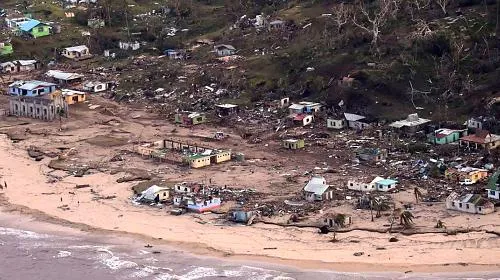FIJI (February 26, 2016) — As the international relief effort in Fiji continues, humanitarian organization CARE says it is critical international aid targets the specific needs of women and girls.
“As the international relief effort continues to reach remote communities, it’s critical that specific support is provided for Fiji’s most vulnerable women and girls, including new mothers and those in charge of households,” said Charlie Damon, Head of CARE’s emergency response team in Fiji. “In remote areas of Fiji women and girls are often responsible for collecting water, food and firewood. After a disaster these household chores have to be done in addition to the clean-up. Often this means girls are forced to miss school when it reopens. I saw this happen in Vanuatu after Cyclone Pam a year ago.”
Damon added, “Following emergencies, women and girls also remain at risk of life-threatening health and nutrition problems. Many women in the communities we work with will already be worried about crop damage and their community’s long term food supply, and they will be trying to rebuild their gardens to grow food again.
“When distributing relief, we need to ensure we have hygiene kits that support women during menstruation, that reconstructed toilets provide women with protection and privacy, and that food deliveries support the needs of new mothers and babies.”
Damon said it was also vital to recognize the critical role women had played in saving lives when Cyclone Winston struck, and their ongoing role in leading community recovery.
“We need to mobilize the strength of women’s leadership while continuing to provide support, care and protection to the many thousands of women who have lost everything in this devastating disaster,” Damon said.
Cyclone Winston, one of the strongest storms ever recorded in the Southern Hemisphere, swept between Fiji’s two main islands on Saturday, bringing devastating winds with gusts of up to 200 miles per hour.
-ENDS-
Media contact: Holly Frew hfrew@care.org +1.404.979.9389
About CARE: Founded in 1945, CARE is a leading humanitarian organization fighting global poverty. CARE has more than six decades of experience helping people prepare for disasters, providing lifesaving assistance when a crisis hits, and helping communities recover after the emergency has passed. CARE places special focus on women and children, who are often disproportionately affected by disasters. To learn more, visit www.care.org.

